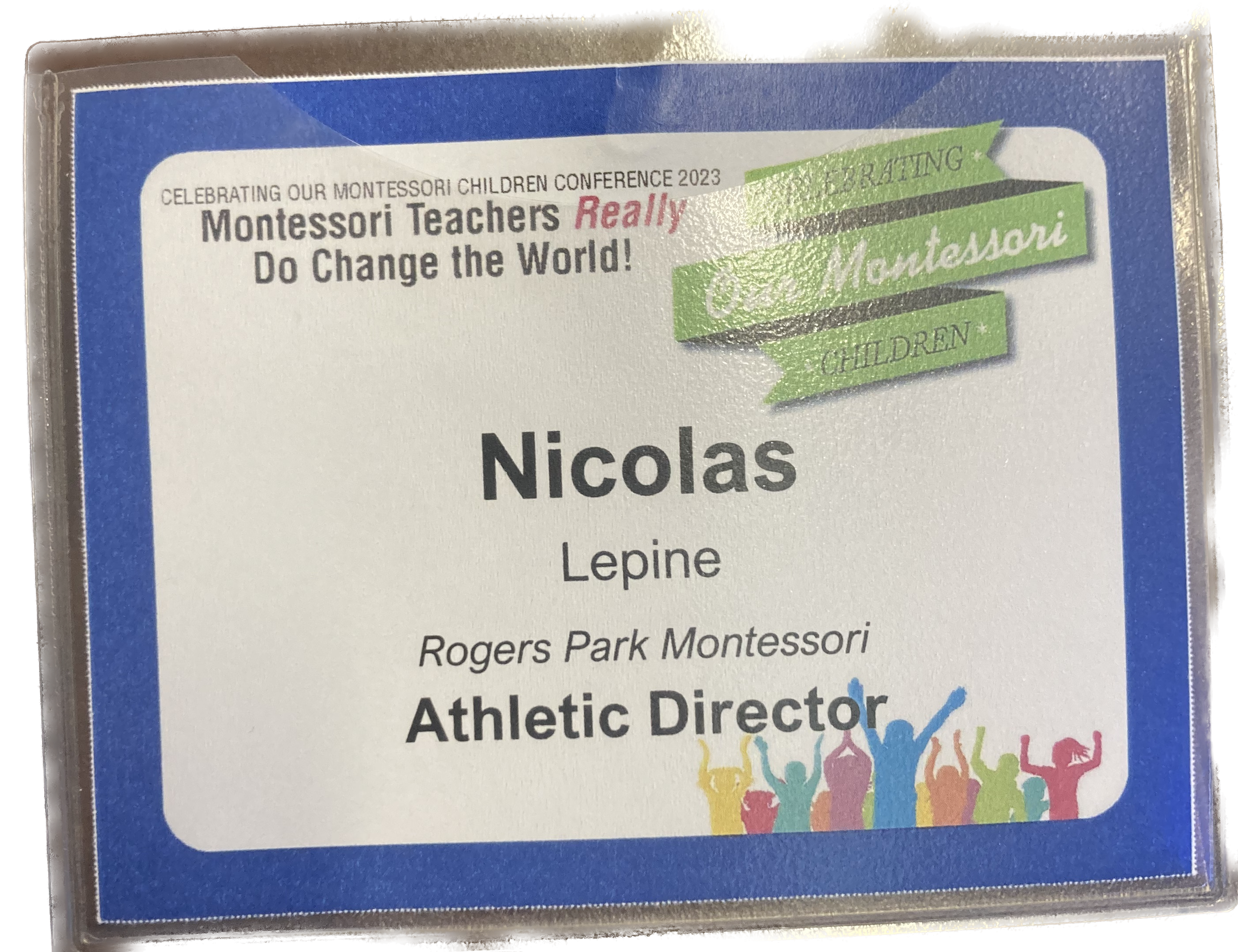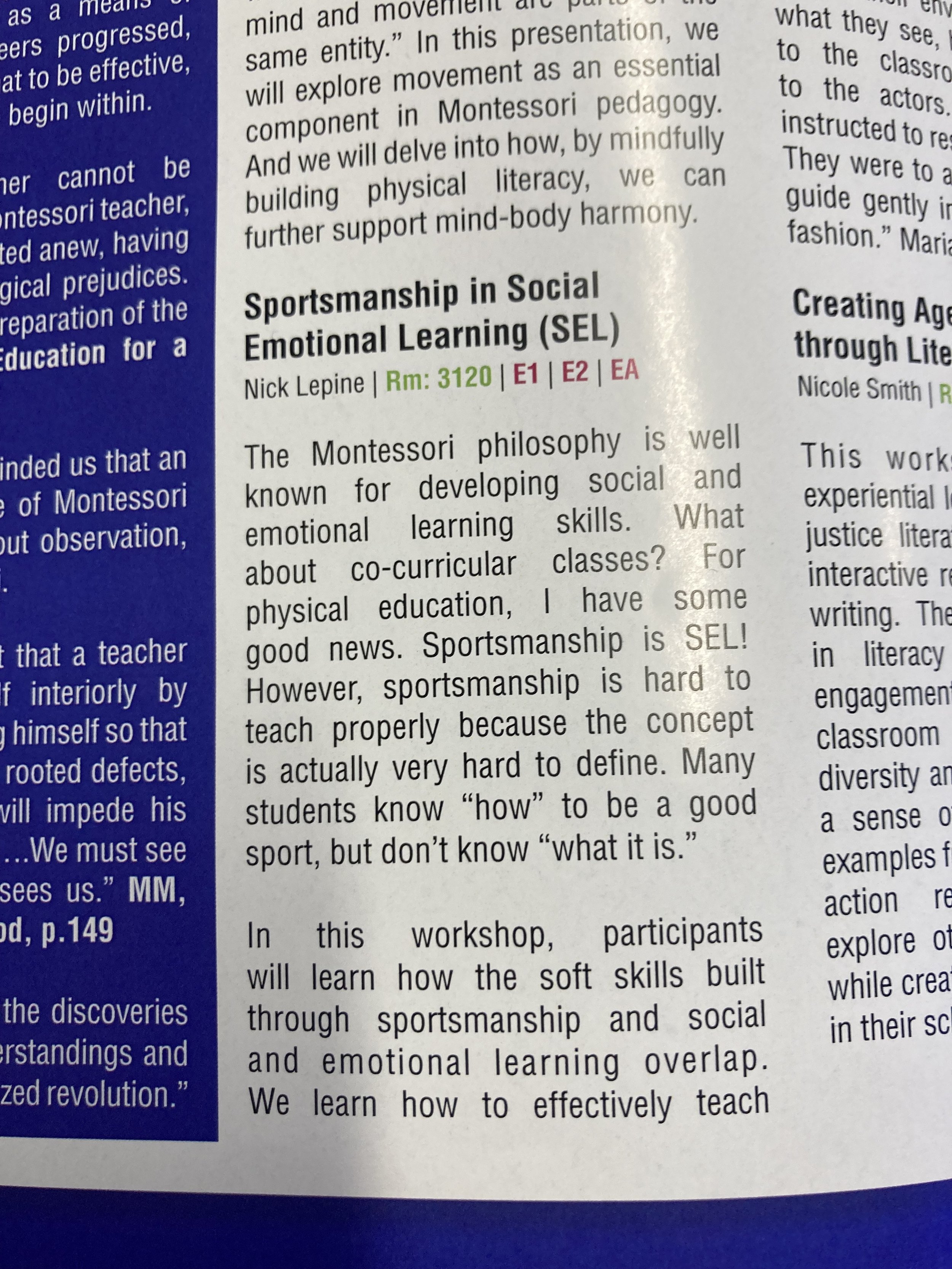I wanted to thank everyone who came to my presentation on Sportsmanship and SEL at the WMA conference in Lacrosse, Wisconsin. I have been presenting at the Wisconsin Montessori Association conferences for years, and the turnout this year was exceptional. It was great to see some familiar faces from Coulee Montessori in the audience (and at Uno Venti later). I also ran into an old classmate from the St. Catherine days when we were working on our Montessori certifications. I wish I could have spent more time with everyone. Unfortunately, we had a tight schedule with several family birthday celebrations sandwiched into our trip.
I was asked two interesting questions during the presentation. While I thought my answers on the spot were ok, I wanted to flesh out my thoughts on the topics after a little more time to think about them.
Question #1:
“What do I do with a student who gets so upset during the game that they can become physically violent?”
First and foremost, the teacher should follow the school's policy regarding any physical violence. A potential powder keg student cannot be allowed to hurt other children. We can find a way for them to participate, but they only play once we are sure they can do so without harming others. If someone cannot play safe, they cannot play, but they can participate outside of the game, where they can still be active and involved. Students who cannot control emotional outbursts stay close to me (the instructor) and possibly help facilitate the game as a referee or scorekeeper. However, they are a danger to other students until they can control emotional outbursts that can turn physical.
I would also choose more lessons that don’t have direct competition between students or teams but games where a class is trying to beat a specific time or score. This works much better because their adversary is not a person to lash out against. Without a specific target for the student’s anger, they have a better chance of not taking out their anger on another. Again, keep that student close and help them with self-management as they work through intense feelings, which will also keep that student away from others.
Question #2
“What do we do when the parents are not good examples of sportsmanship?”
When the question was first asked, I interpreted it like the parent was a professional athlete. While not excusing the parent, I inclined to use empathy to help the student understand that some intense feelings stem from their parent's performance in the sport that influences the money they bring home. The money they bring home literally "puts food on the table." Hence, it is more understandable if a parent becomes more upset and doesn't display the best sportsmanship because there is much more at stake for them. But, again, this is not meant to excuse their behavior. However, only an explanation of why, but ultimately it would be better if the parent was a better model for sportsmanship.
The question was later clarified that the parent was a “weekend warrior” who was not a professional athlete. In this scenario, it becomes more difficult because the obvious answer is the parent should be a better sport and example for their child. However, throwing the student's parents under the bus is not the right choice either (even if it is true). In this more complicated case, I would use the environment (school) as the factor that a student must consider. In school, we are respectful and kind to each other. PE class and recess are part of the school, so we need to abide by the best ideals of sportsmanship because we are in school. We want to have fun with our classmates we see every day. If we get in fights or altercations because of a game, that makes the whole day uncomfortable because we need to share space with this classmate. If this drags on for days, the whole school experience can feel ruined as the student is preoccupied with this rivalry. Instead, it's so much easier and better in the long run if classmates get along and don't hold petty grudges over games. Even if simple coexisting is the initial goal, it is better than open rivalry. We want the student to think of the long term, especially in the Montessori classroom where we may be with the same classmate for three years.
Looking to the future, I hope to see many people at the AIMS conference on February 24th and 25th! I will be presenting on sportsmanship and SEL. So, if you live in Illinois (or close by), come to Benedictine University for a day of unique and outstanding presentations! Click on the link below for more registration information!







